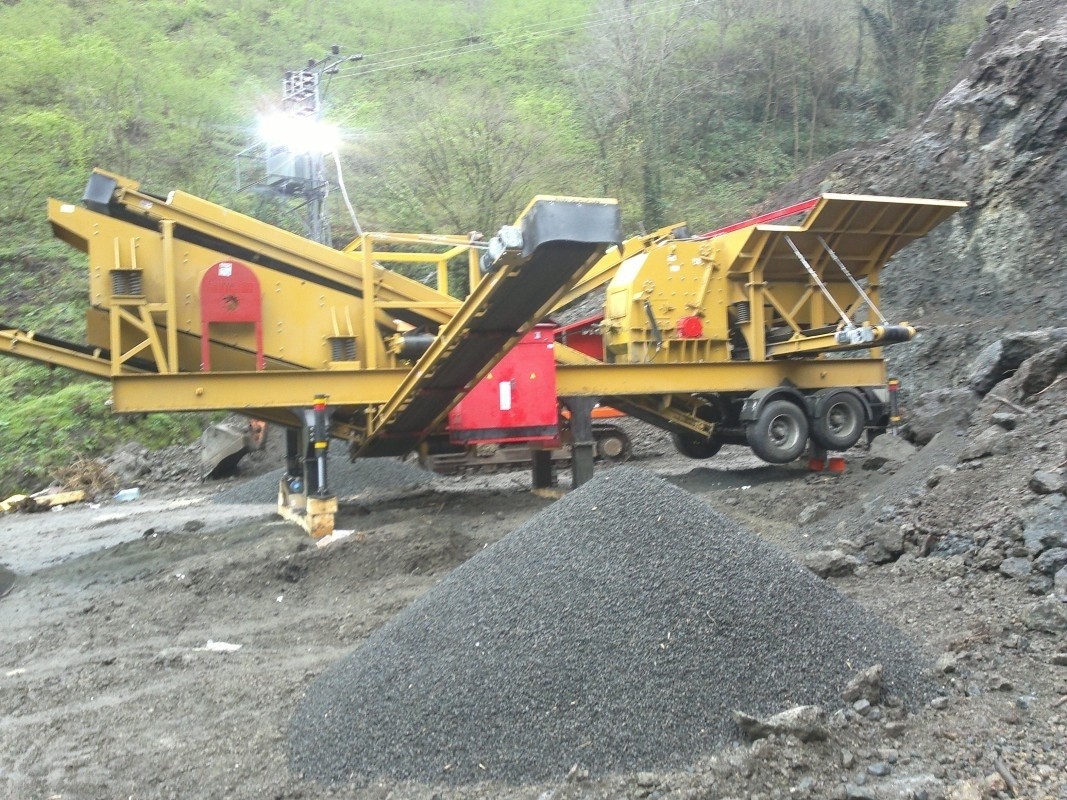What is a Mobile Crusher? Where is it Used? What to Consider When Purchasing a Mobile Crusher?
What is a Mobile Crusher? A mobile crusher is a portable machine used for crushing large rocks and stones into smaller, more manageable pieces. These machines are commonly used in industries such as construction, mining, road building, quarry operations, and recycling. A mobile crusher works by crushing large boulders or stones and turning them into smaller aggregates that can be used for various applications. Since mobile crushers are portable, they can be moved to different job sites, reducing transportation costs and increasing efficiency.
Where are Mobile Crushers Used?
-
Construction Industry: Mobile crushers are widely used in the construction industry for crushing aggregates and stones. Large rocks and boulders are processed into smaller materials suitable for construction.
-
Road Construction: In road building projects, mobile crushers break large stones into smaller particles, providing materials for asphalt and concrete roads.
-
Mining: In mining, mobile crushers are used to process rocks extracted from mines into smaller, more usable sizes.
-
Recycling: Mobile crushers are utilized in the recycling of old construction materials and waste, transforming them into reusable aggregates.
-
Quarries: They are used in quarries for extracting and processing stones.
What to Consider When Purchasing a Mobile Crusher?
-
Processing Volume and Capacity: The capacity of the mobile crusher should be chosen based on the scale of the projects and the amount of material to be processed. For larger projects, machines with higher processing capacities may be required.
-
Portability: The ease with which the mobile crusher can be moved from one site to another is a critical factor. Machines with better portability enhance job site flexibility.
-
Engine Power and Performance: The engine power of the crusher is essential for efficient and fast operation. Higher engine power helps in crushing tougher rocks.
-
Spare Parts and Service Support: Long-term reliability of a mobile crusher is supported by good spare parts availability and service support. Ensure that spare parts are readily available.
-
Fuel Consumption: Fuel efficiency directly impacts operating costs. Choosing a machine with low fuel consumption can lead to significant savings in the long run.
-
Ease of Use: The mobile crusher should be easy for operators to use. An intuitive interface and ergonomic design improve operational efficiency.
-
Environmental Factors: Consider the environmental conditions where the crusher will be used. Machines that can perform well in extreme conditions (cold, hot, humid, or dusty) offer broader application possibilities.
-
Price and Return on Investment: Finally, the purchase cost and long-term return on investment should be considered. Evaluate the potential savings and benefits over the life of the machine.
 English
English
 Le français
Le français
 Türkçe
Türkçe

